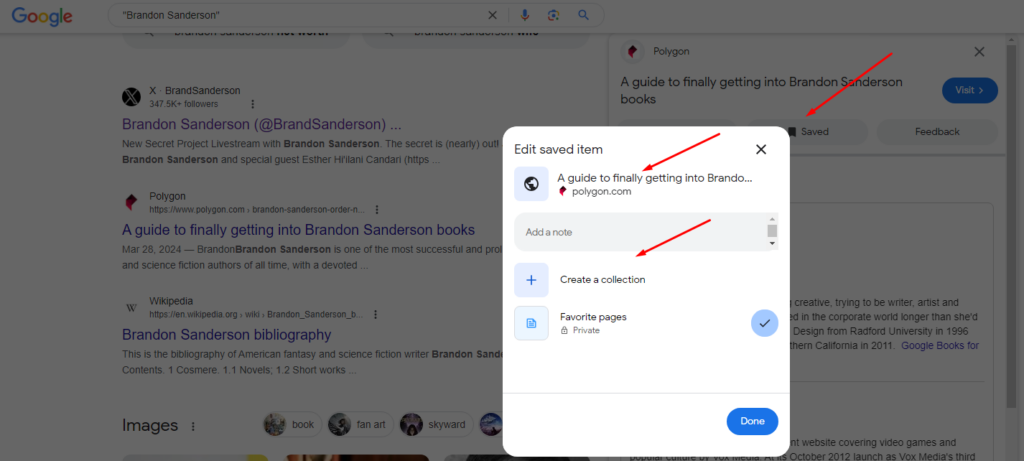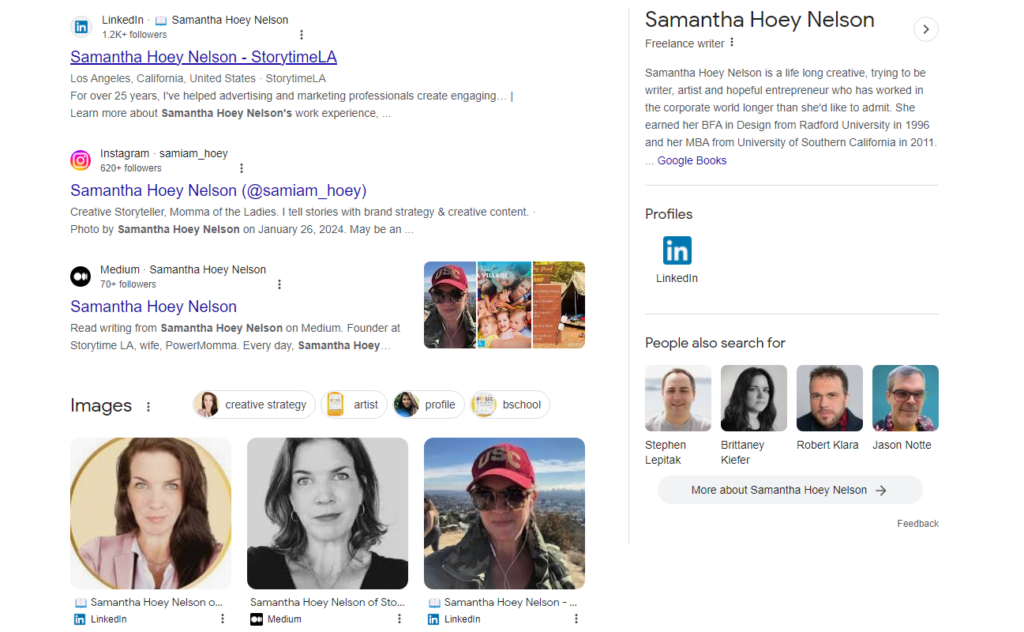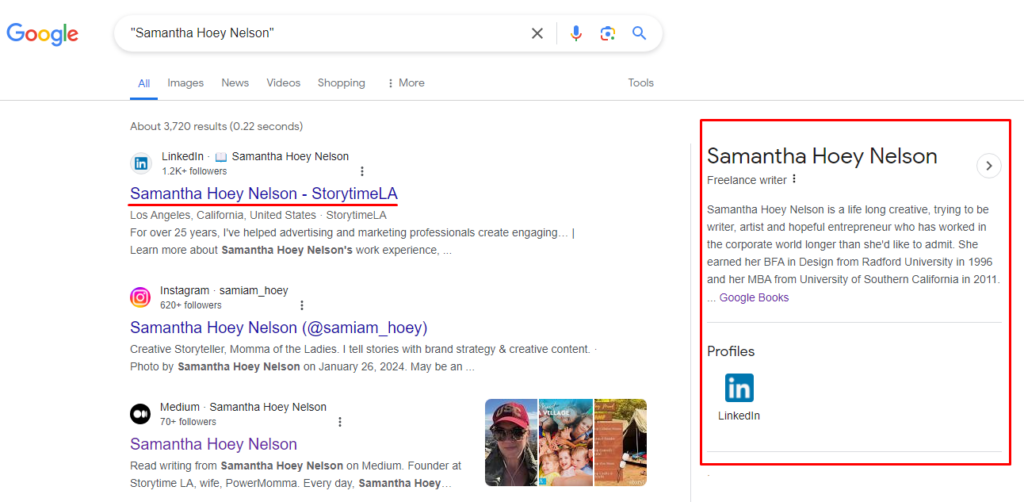Online Reputation of Author
Explanation & Implementation Guide
Explanation
An author’s online reputation is a key factor in shaping consumer trust and engagement. A positive online presence across various websites helps build credibility and fosters trust with the audience. However, a lack of online presence or a negative reputation can deter potential customers, negatively impacting the perception of the author and their work.
Implementation Guide
Use Google Search:
- Start by conducting a comprehensive search for the author’s full name in quotation marks (e.g., “Brandon Sanderson”) on Google.
- Review the search results to assess the author’s visibility across various websites and platforms.

Analyze Search Results:
- Evaluate the scope of the author’s online presence by checking the results.
- Look for links to the author’s personal website, social media profiles, professional profiles (LinkedIn, Medium, etc.), articles, guest posts, interviews, mentions, and reviews.
- Consider the quality and reputation of the platforms where the author appears.

Utilize Social Media Platforms:
- Search for the author on popular social media sites like LinkedIn, Twitter, Facebook, and Instagram.
- Assess the author’s activity, engagement level, follower count, and the content quality shared.
- Look for endorsements, recommendations, and connections with notable individuals or organizations.
Use Online Tools:
- Make use of online tools and services like BrandYourself, Mention, or Google Alerts to track mentions of the author across the web.
- Set up alerts for the author’s name to stay informed about new mentions or published content.

Fixing the Issue
Improve Online Reputation:
- Encourage the author to actively engage in online communities, forums, and discussions within their industry.
- Ensure they maintain a professional online presence by regularly updating social media profiles, sharing quality content, and interacting with their audience.
- Address any negative feedback constructively and work on improving the author’s reputation over time.

Establish a Personal Website:
- If the author lacks a personal website, suggest creating one to highlight their expertise, achievements, and portfolio.
- Include an “About Me” section with a professional bio and links to relevant social media profiles.

Optimize LinkedIn Profile:
- Ensure the author’s LinkedIn profile is fully filled out and reflects their professional expertise and accomplishments.
- Encourage the author to join industry-related groups and participate in discussions to boost visibility.

Guest Post and Contribute:
- Identify reputable websites, blogs, or publications in the author’s field and reach out for guest posting or article contributions to expand visibility.
Respond to Mentions and Engage:
- Respond promptly to mentions and comments on social media or other online platforms.
- Engage with followers by sharing insights, answering questions, and participating in discussions relevant to their work.

Monitor and Adjust:
- Regularly track the author’s online presence using tools like Google Alerts and adapt strategies based on feedback and engagement levels.
- Keep profiles and content updated to ensure a current and positive online reputation.
No comments to show.

Leave a Reply